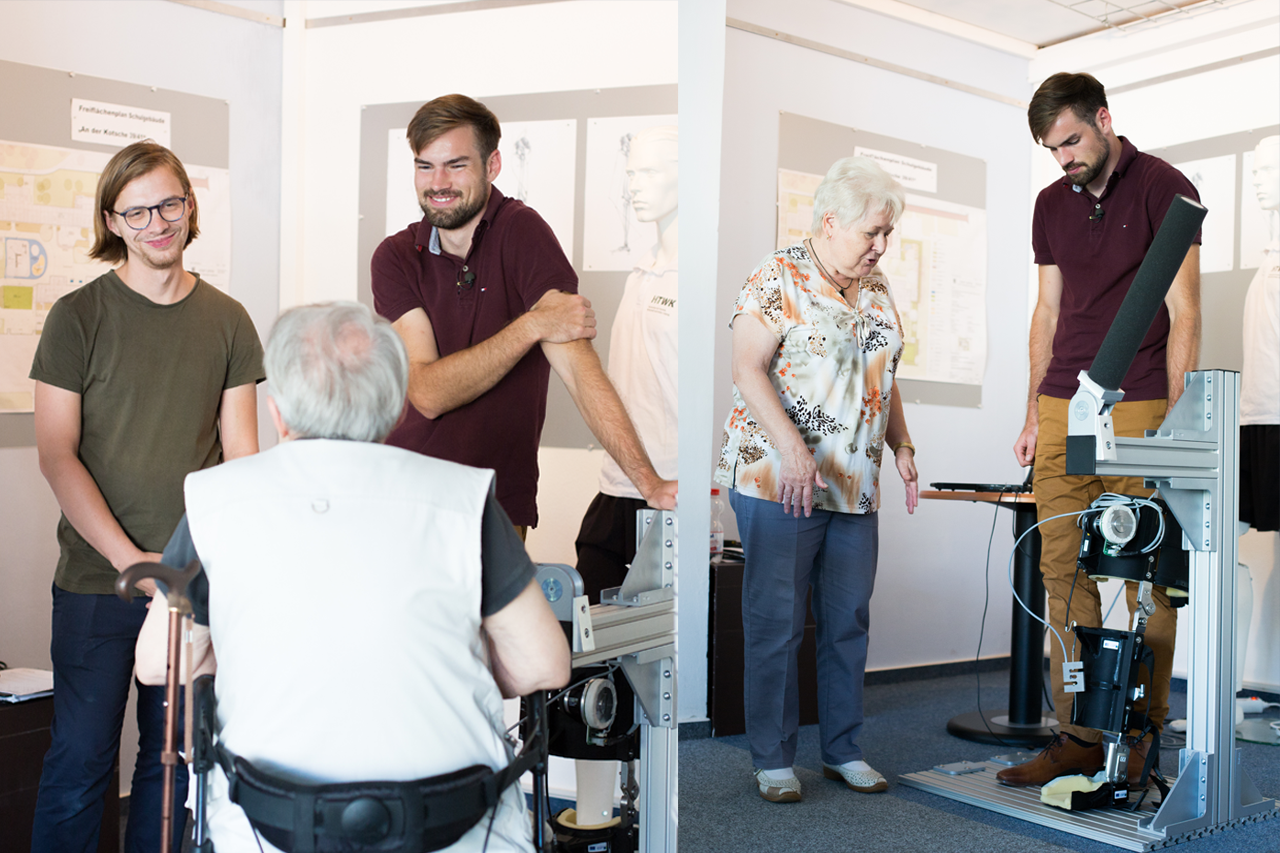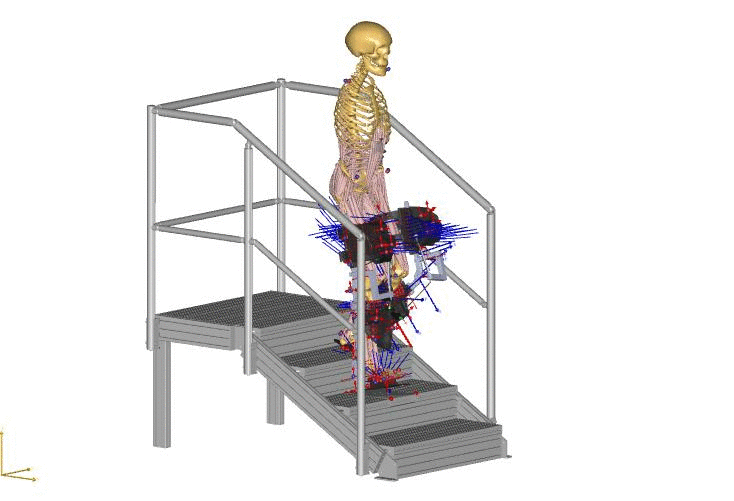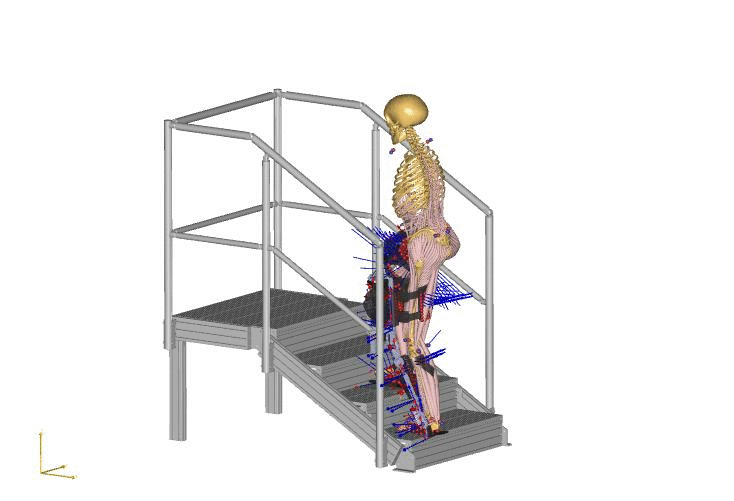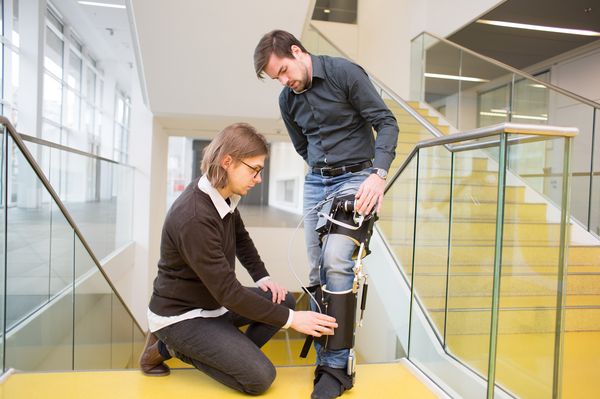Max Böhme successfully defends his dissertation on the biomechanics and senior-friendly design of exoskeletal movement support systems
On 11 March 2022, Max Böhme from the Faculty of Engineering successfully defended his dissertation on the biomechanics and senior-friendly design of exoskeletal motion support systems. Böhme's scientific work and research makes a significant contribution to the age-appropriate design of exoskeletons for senior citizens.

While conventional lifts and stairlifts replace the residual mobility of seniors with limited mobility and ultimately contribute to a gradual deterioration in their state of health, mobility support systems can maintain the residual mobility of users and thus also contribute to a better quality of life. The exoskeleton co-developed by Böhme is intended to make it easier for senior citizens to climb stairs in their home environment in future.
Safe, intelligent motion support system for overcoming stairs
As a member of the interdisciplinary research group "DemoS -System Solutions for Shaping Demographic and Structural Change", Böhme researched minimally actuated movement support systems, known as exoskeletons, from 2016 to 2019. From 2019 to 2020, future users were also involved in the development of the new exoskeleton. To this end, the prototype (demonstrator) was presented to senior citizens in Cologne, Leipzig, Berlin and Essen as part of an interactive workshop. Interested parties were able to try out and evaluate the prototype live. The feedback from the seniors was then incorporated into further development and optimisation.
For his dissertation, Böhme then constructed a second demonstrator based on the feedback from the seniors, which he then tested in his work in the biomechanics laboratory at Leipzig University. To analyse the results, Böhme developed an interface model in cooperation with a researcher from the Politecnico di Torino (Italy) and researchers from Aalborg University (Denmark). This interface model enables the connection of modelled exoskeletons to a human musculoskeletal model, which also allows interface forces to be calculated.


The functional principle of the senior-friendly exoskeleton
In the senior-friendly movement support system for overcoming stairs, the knee joints are supported in their movement by a special drive technology where the greatest lack of force usually occurs. With the help of sensor technology and intelligent control, the drives supply the missing force in every situation. The required level of support was determined in extensive, prior biomechanical studies using a specially developed method.
Research for greater accessibility
"I am sure that we will be able to use more diverse exoskeletons in everyday life in the coming years. This type of movement support could not only enable senior citizens to climb stairs independently again, but exoskeletons could also make physically strenuous work tasks easier. I am delighted that I was able to make a contribution in this field that can now be used directly by other research and development teams," emphasises the newly qualified Dr.-Ing.
The dissertation
Max Böhme's dissertation was funded by an ESF doctoral scholarship and was written as part of a co-operative doctoral process. The scientific work was supervised by Prof. Dr Marc Kraft from TU Berlin (Department of Medical Engineering, Institute of Machine Design and Systems Engineering) and Prof. Dr Johannes Zentner from HTWK Leipzig (Institute for Development-Oriented Mechanical Engineering, Faculty of Engineering Sciences). Böhme also received support from the Department of Biomechanics at Leipzig University and other international researchers.
